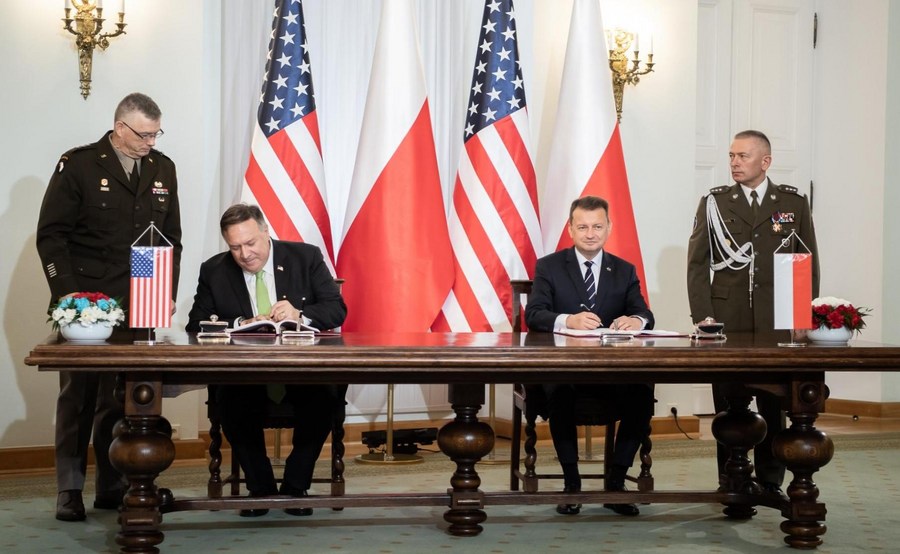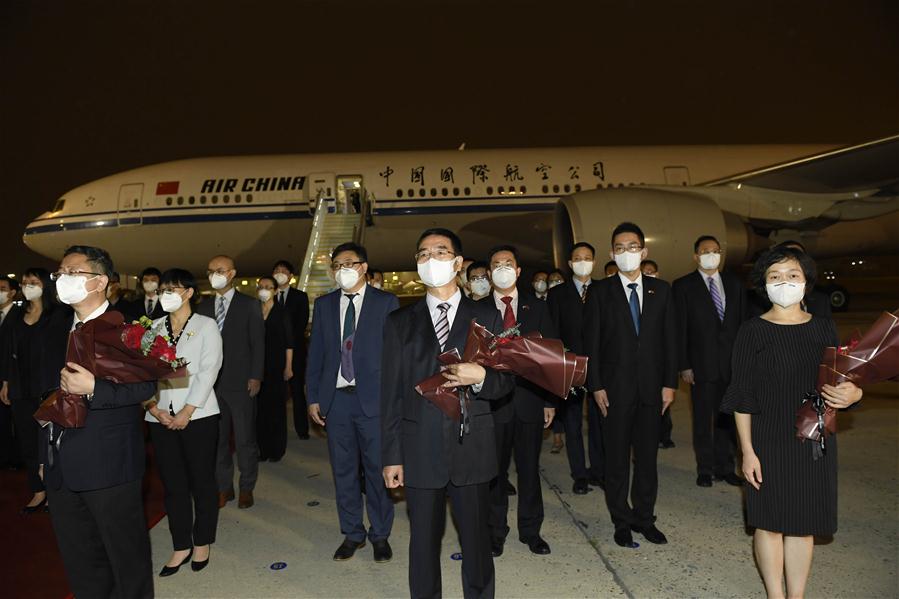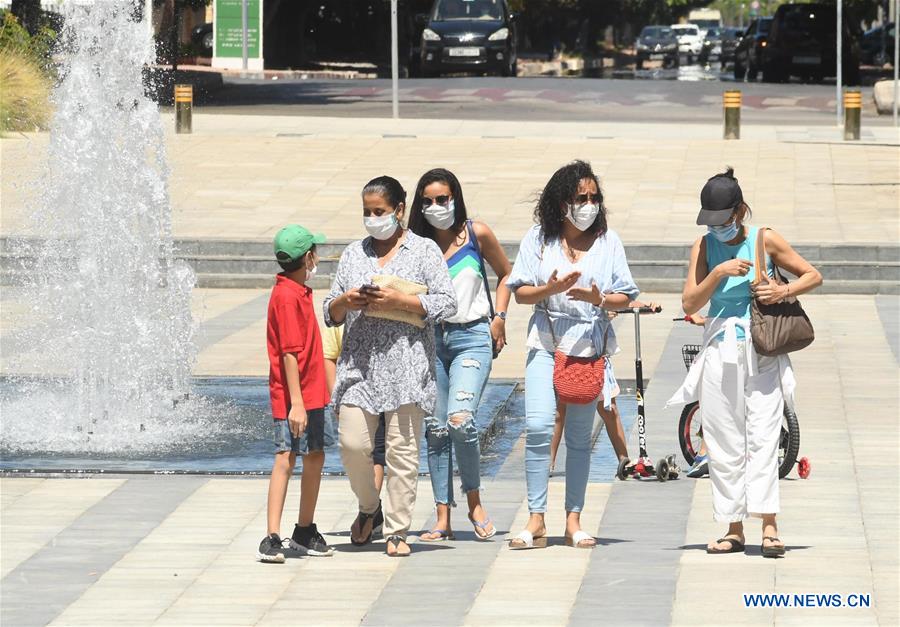-- One of the focuses of Pompeo's journey was to form a European alliance against China and Russia.
-- Pompeo's anti-China rhetoric has found little support, while his attempt to divide Europe was met with criticism.
-- Pompeo had repeatedly used democracy and freedom as pretexts to promote the United States' own interests, and thus divide Europe into an old and a new bloc.
BERLIN, Aug. 17 -- U.S. Secretary of State Mike Pompeo wrapped up his four-stop trip to Central and Eastern Europe after leaving Poland this weekend, probably with some disappointment.
During his stops in the Czech Republic, Slovenia, Austria and Poland, Pompeo spared no efforts preaching his China-bashing cliches, attempting to build an alliance against Beijing on the pretext of democracy and freedom.
However, his anti-China rhetoric has found little support, while his attempt to divide Europe was met with criticism.

U.S. Secretary of State Mike Pompeo (2nd L) and Polish Defense Minister Mariusz Blaszczak (2nd R) sign the Enhanced Defense Cooperation Agreement (EDCA) in Warsaw, Poland, on Aug. 15, 2020. (Polish Ministry of Defence/Handout via Xinhua)
ANTI-CHINA AGENDA FAILS
One of the focuses of Pompeo's journey was to form a European alliance against China and Russia. He asked the four countries to shun Huawei, the Chinese telecommunications giant considered a threat by Washington as it takes a lead in the 5G network, as well as Russia's energy supply to Western Europe.
During his journey, Pompeo repeatedly claimed that China and Russia are posing a threat to "the democratic world," saying that using technologies from China and Russia would pose a "danger" to the sovereignty of those countries.
However, Pompeo's rhetoric found little resonance and even rejections. At a joint press conference with Pompeo in Prague on Wednesday, Czech Prime Minister Andrej Babis called his country "a leader in Europe" on 5G and cybersecurity, saying that the Czech Republic is "a sovereign country and I do not see any major threat here."
On relations with China, Babis said that the Czech Republic "seeks lines with the European Union and there's no fundamental problem here," despite Pompeo's botched attempt to sow discord.
Babis told a Czech newspaper on Thursday that as a sovereign country, the Czech Republic treats countries equally. He also refused to rule out Huawei as a potential partner in 5G building despite Pompeo's push.
A similar scene played out in Vienna, Pompeo's third stop. At a joint press conference with his U.S. counterpart, Austrian Foreign Minister Alexander Schallenberg said that "our approach is not to ban in general one competitor or one provider, but to establish a clear list of criteria to avoid high-risk providers."
On the issue of 5G and cybersecurity, Austria shared similar stance as the Czech Republic. Schallenberg said that Vienna has adopted a common position within the EU, which is called the "EU toolbox."
Pompeo probably won some support in Slovenia, the country currently led by a populist government, and both countries signed a declaration on 5G security on Thursday which will exclude Huawei; however, it drew widespread criticism from both political and media circles.
"The signing of the political declaration on 5G security between Slovenian Foreign Minister (Anze) Logar and U.S. Secretary of State Pompeo does not follow Slovenia's interests," member of the European Parliament and member of the leadership of the Slovenian Social Democratic Party Milan Brglez said.
The Slovenian local newspaper Vecer carried a commentary on Friday, saying that Pompeo found a willing audience among Slovenian officials for U.S. plans to edge out Chinese competition in 5G telecommunications and contain Russia's energy expansion.
"We cannot get rid of the feeling that all that search for threats to human rights, secure communications, the rule of law and democracy is not about those values of Western civilization, but about who gets a bigger slice of the pie in this future business, and consequently controls the world," said the commentary.













